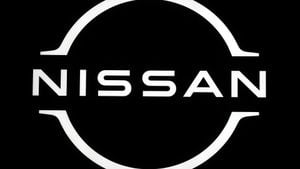Nikola Corporation, once heralded as the next big contender in the electric vehicle (EV) market, has filed for Chapter 11 bankruptcy protection. The announcement, made on February 19, 2025, marks a significant downturn for the Phoenix-based startup, which had captivated investors with ambitious promises of zero-emission hydrogen and battery-powered trucks.
The decision to seek bankruptcy protection follows unsuccessful attempts to secure funding or find a buyer for the beleaguered company. Nikola's struggles represent not just the downfall of the firm but also highlight the challenges facing many EV startups in today's economic climate.
When Nikola burst onto the scene in 2015, it was led by ambitious founder Trevor Milton, who charismatically pitched the idea of revolutionary trucks powered by clean energy. At its peak, Nikola’s market valuation soared to $30 billion, briefly surpassing established companies like Ford. The company had attracted high-profile partnerships with automotive giants, including General Motors and Bosch, and generated significant media buzz.
But the euphoria was short-lived. Trevor Milton’s tenure was marred by scandal following allegations of fraud. Milton, who was eventually found guilty of securities fraud and misleading investors, resigned amid scrutiny from the public and regulators. His fraudulent actions included exaggerations about Nikola’s technological capabilities and production milestones. He was sentenced to four years in federal prison for his role, casting long shadows over the company he founded.
The stark reality surfaces as Nikola’s promises turned hollow. The company produced only about 600 vehicles over the past three years, with many of those suffering from defects leading to recalls and costly repairs. Financially, it finds itself on the ropes; as of the latest reporting, it has approximately $47 million cash on hand against liabilities estimated between $1 billion and $10 billion.
Steve Girsky, who took over as Nikola's CEO after Milton’s fall from grace, acknowledged the harsh truth: "Our very best efforts have not been enough to overcome these significant challenges, and the board has determined Chapter 11... for the company and its stakeholders." This statement underlines the complex realities facing the company, which had hoped to lead the charge toward sustainable transportation but instead found itself struggling to keep the wheels turning.
Girsky pointed to macroeconomic factors as part of the problem, underscoring broader industry challenges—high production costs, insufficient charging infrastructure, and faltering customer interest all played their part. The market for electric vehicles has become increasingly competitive, with well-established companies like Tesla continuing to innovate and expand their reach.
During its recent bankruptcy proceedings, Nikola has filed motions to pursue the sale of its assets. This process, governed by Section 363 of the U.S. Bankruptcy Code, is intended to help maximize value for creditors and other stakeholders. Analysts observe the company’s valuation to be around $500 million to $1 billion, but it’s unclear how much it will recover from this fire sale.
Milton, reflecting on the company’s demise from his prison cell, took to social media, expressing bitterness over his convictions. “This is what happens when you frame a founder for a crime they didn't commit, destroy the company's brand, lie to shareholders, take huge salaries, pillage the company's IP and run off...” he noted on X (formerly Twitter), indicating his disapproval of how events unfolded.
The bankruptcy could mark the end of Nikola as many knew it, as plans to continue limited service operations for its existing trucks are reliant on court approval. Girsky added, “We have taken numerous actions to raise capital, reduce our liabilities... Unfortunately, this was not enough.”
The repercussions of Nikola’s failure echo across the EV industry. Other startups like Fisker, Lordstown Motors, and Canoo have faced similar fate—falling victim to higher interest rates, reduced capital flow, and scrutiny from investors disillusioned by broken promises. The reality is stark: the path to electric vehicle commercialization is fraught with challenges and uncertainties.
What lies next for Nikola? The company may continue some limited operations, particularly focused on providing service and support for trucks currently on the road, including hydrogen refueling operations through March 2025. Beyond this, its future is uncertain as it navigates the bankruptcy process and seeks to sell its assets. With the overarching narrative of innovation now coupled with instability, this chapter of Nikola’s story serves as both a cautionary tale and a barometer of the electric vehicle industry’s turbulent waters.



